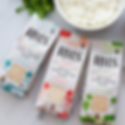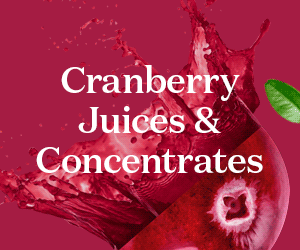This month, we speak to Ibis Rice – a Cambodia-based rice company on a mission to reduce deforestation and protect endangered species while providing organic food products, made from rice sourced from its local farmer partners, to UK supermarkets. Nicholas Spencer, the company's CEO, tells us more.

Could you tell us a bit about what inspired Ibis Rice’s establishment and mission?
Ibis Rice is a conservation project set up by the Wildlife Conservation Society (WCS) to protect threatened forests and endangered species by engaging directly with small scale rice farmers living and working within wildlife sanctuaries in Northern Cambodia.
The project started when a Giant Ibis, Cambodia’s national bird thought extinct for 50 years, was spotted by a wildlife camera trap. Since then, the WCS has worked on land security for these farmers, and in exchange for the organic cultivation and environmental stewardship, we reward our farmers with guaranteed purchase of their rice and a 70% market premium.
15 years later, we now work with 2700 farming families, and there are now thought to be over 200 Giant Ibis birds in these forests.
How has Ibis Rice worked with farmers to transform their practices toward a conservation-aligned approach?
Ibis Rice is about encouraging traditional farming practices. Our farmers grow a local, heritage variety of long-grain jasmine rice called phka rumduol. They plant once a year, in season with the annual flooding from the monsoon, and do not use any artificial irrigation, pesticides or fertilisers.
In what way are you able to measure the impact of the company’s work in this area?
We have a large team that are in the fields, engaging with our farmers. The WCS also uses satellite imagery to measure rates of deforestation in our wildlife sanctuaries and assess the population sizes of over 50 endangered animals and birds.
What have been some of the most notable benefits for farmers, local communities and the wildlife ecosystems?
Our farmers receive guaranteed purchase of their crop at a significant market premium, and we also provide them with free seed, harvest financing and technical training on yield and improvement and climate resilience.

Recently we have also started working with them on a bean cover crop before and after the rice crop, which regenerates the soil, builds the local food chain and provides out famers with two additional cash crops a year.
For the wildlife we have stabilised populations of some critically endangered birds and mammals, and have significantly reduced deforestation in the areas in which we operate. Our forecasts are that if we hit our current targets, each kilogram of rice we sell has a negative 250g carbon impact through prevented deforestation.
How do Ibis Rice’s products provide a unique and differentiated option with regards to taste and nutrition?
The rice that our farmers grow, phka rumduol, has been voted best rice variety in the world six times at the International Rice Forum. As well as selling rice, we make our own rice cakes and rice cereal – all from this same amazing rice variety. Our new bean and rice cakes, using the bean inter-crop, now offer a rice cake with a source of protein and high in fibre, made from just two simple ingredients.

With the rise of plant-based eating, have you observed increased demand from consumers and food businesses seeking responsibly sourced products with a strong sustainability and ethical background?
Customers want to buy good food for a good price, and given the very short supply chain for our products and keeping all production in-house, we are able to get organic rice on supermarket shelves at less cost than conventional, non-organic brands. Of course, as citizens we all want to reduce the native impacts of our shopping, and to make better choices, but we need brands who make those choices simple and not with a significant cost attached.
What has been the biggest challenge on Ibis Rice’s journey so far?
Scale – making your own products is hard when not at huge volumes, which is why not many companies do, and just have all products contract manufactured. Getting the least damaging packaging is always hard, and getting the attention of retail buyers and getting our products on the shelf in front of the customer takes work.

What has been the company’s greatest achievement to date?
Engaging Chris Packham as our brand ambassador.
Having 100% success rates for Sarus cranes nests in our paddy fields – Sarus cranes are the tallest flying birds in the world, but they nest on the ground right in the middle if the paddy fields.
Helping to protect 780,000 hectares of threatened forests.
Getting a listing this year with Abel & Cole and exceeding their forecasts for initial sales – every month brings something amazing in this project.
Any exciting plans on the horizon? What’s next for Ibis Rice?
More farmers, more forests, and extending the business models to other crops and commodities in Cambodia so that we can then start protecting more forests and other engaged species.




_gif.gif)


